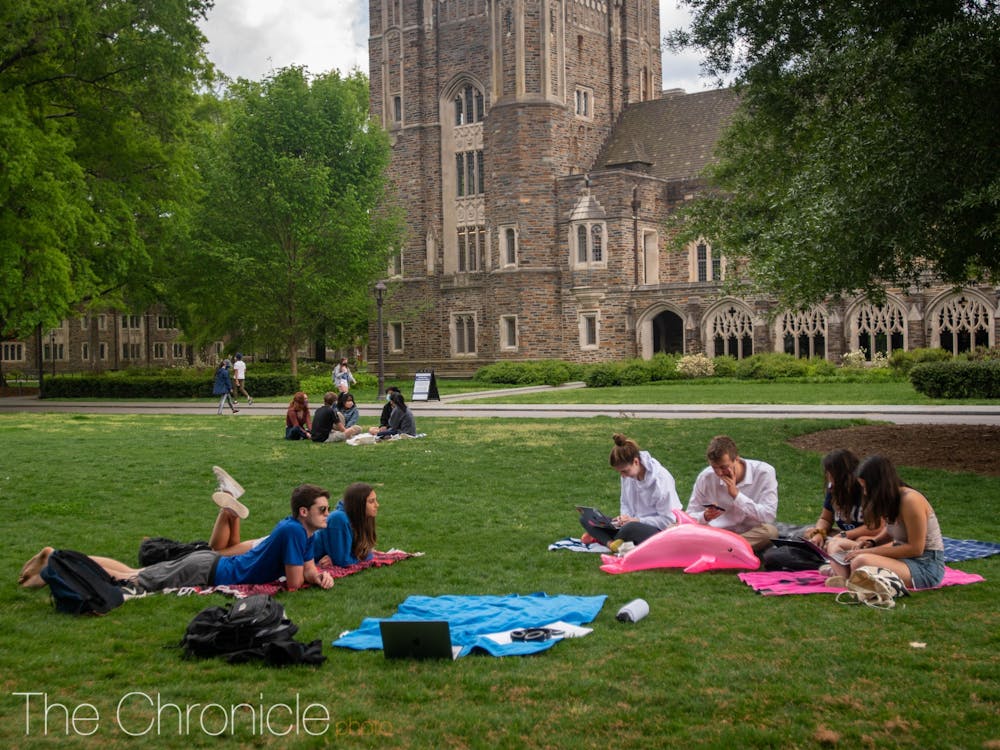Despite seeing over 800 cases of COVID-19 among students, faculty and staff during its first week of return to campus, Duke resumed in-person classes Jan. 18. A week later, a significant number of seats in these lectures remain empty as students with COVID-19 comply with the University’s isolation guidelines.
The student experience has varied across Duke’s several quarantine facilities. Josh Wagner, a first-year who resided in Lancaster Commons after testing positive, described the policies around social gatherings as “not very strict.”
“I was told by one of the workers here that because of the vaccine and the fact that we have all already contracted the disease, we are free to interact with one another as much as we like,” Wagner said. “That has greatly improved my experience quarantining.”
Chloe Decker, another first-year who quarantined at Lancaster, reported a similar experience. Her roommate and some of her roommate’s friends got COVID-19, so Decker said she made several new friends during her quarantine period.
Despite the inconvenience of being removed from campus life to quarantine, there is a positive across the board: quality accommodations and ample snacks.
Decker described a supply closet stocked with everything a student in quarantine could possibly need, “from hand lotion to instant oatmeal.”
As for meals, residents are sent daily surveys to select their lunch and dinner for the following day, which is charged to their meal plan. Chick-fil-A and Mellow Mushroom catering have been weekly staples on the menu in isolation housing.
Sophomore Sarah Houston, who isolated in Avana on Broad after receiving her positive test, expressed satisfaction with the accommodations and dining she was offered.
However, she found that the Avana facility’s relatively stricter policies around social gathering were detrimental to her overall wellbeing. “My experience in quarantine has been okay, but I do wish I had more social interaction and more support mentally,” she said. Her interaction over the five-day period was largely limited to her roommate.
Houston also discussed the lack of counsel that she received from the University in light of contracting COVID-19.
“[Duke has] sent mental health support, like the little links at the bottom of emails, but they haven’t specifically reached out after I received notification that I had a positive test. I haven’t received guidance on that,” she said.
She added that she doesn’t believe her academic advisors or professors are worried about her mental health during this time.
“They’re more concerned about the physical part, the physical symptoms.”
Get The Chronicle straight to your inbox
Signup for our weekly newsletter. Cancel at any time.

Sevana Wenn is a Trinity sophomore and features managing editor of The Chronicle's 118th volume.

